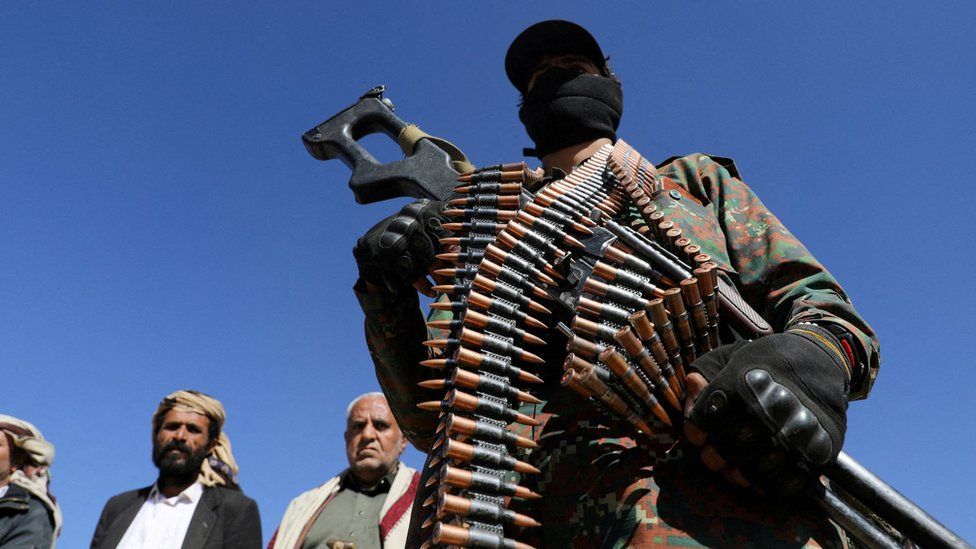-

-
-
Loading

Loading

The Houthis, a minority group from the mountainous northwest of Yemen, have been causing havoc by firing missiles at international shipping they believe is linked to the US, UK, or Israel. They have disrupted global trade by forcing ships to divert thousands of miles away. Despite repeated airstrikes on their missile bases, they remain undeterred and have threatened retaliation against US and UK assets. The Houthis gained power in 2014 after seizing control of the capital, Sana'a, with the support of the deposed President Saleh's loyal Republican Guard. Since then, Yemen has been torn apart by a devastating civil war, resulting in thousands of deaths and widespread dependency on food aid. The Houthis have survived a massive coalition air campaign led by the Saudis, who were concerned about their ties to Iran. Recently, the Houthis have targeted shipping passing through the Red Sea, specifically attacking vessels with Israeli links in support of Hamas. They even engaged in a one-sided confrontation with the US Navy, losing three speedboats and 10 sailors. The Houthis, who represent a minority group in Yemen, view themselves as the rightful rulers. They differ from the rest of the population due to their more violent and war-like nature. Efforts have been made to end Yemen's civil war, with a fragile truce established between the Saudis and the Houthis. However, divisions persist within Yemen, and a victory for the Houthis in a "free and fair election" seems unlikely. The ongoing missile attacks by the Houthis, supported by Iran, show no signs of abating. While a ceasefire in Gaza may offer a chance for the Houthis to declare victory and exit the conflict, the situation in the southern Red Sea remains tense. The Houthis continue to possess a significant arsenal and may even be preparing surface-to-air missile sites. Therefore, the region will remain volatile in the foreseeable future.